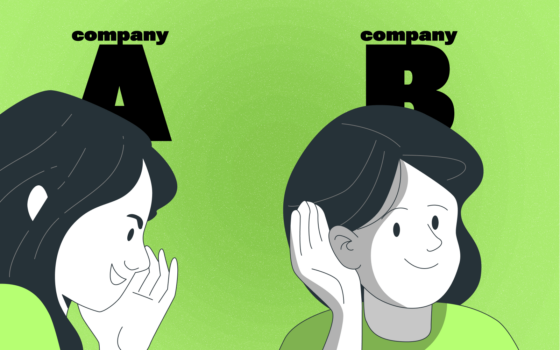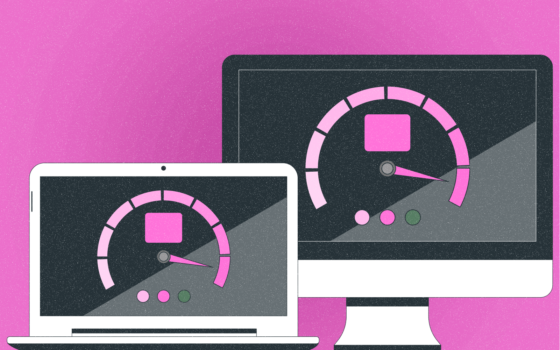Job Fair
Understanding Job Fairs: A Comprehensive Guide
Job fairs, also known as career fairs or recruitment events, have become an integral part of the modern job search and recruitment process. These events bring together employers and job seekers in a single location, providing a unique opportunity for face-to-face interactions and networking. In this comprehensive guide, we'll delve into the world of job fairs, exploring their purpose, benefits, and how to make the most of these valuable career-building events.
What is a Job Fair?
A job fair is an event where multiple employers gather to meet potential candidates for various positions within their organizations. These events can be general, catering to a wide range of industries and job seekers, or specialized, focusing on specific sectors or types of candidates (e.g., recent graduates, veterans, or professionals in a particular field).
Job fairs typically take place in large venues such as convention centers, hotels, or university campuses. They can last anywhere from a few hours to several days, depending on the scale and scope of the event.
The Purpose and Benefits of Job Fairs
Job fairs serve multiple purposes for both employers and job seekers. Let's explore the benefits for each group:
For Job Seekers:
- Networking Opportunities: Job fairs provide a chance to meet face-to-face with recruiters and hiring managers from multiple companies in a single day.
- Exposure to Multiple Opportunities: Attendees can learn about various job openings and career paths they may not have considered otherwise.
- Efficient Job Search: Instead of applying to multiple companies individually, job seekers can interact with numerous potential employers in one location.
- Industry Insights: Participants can gain valuable information about different industries, companies, and current job market trends.
- Interview Practice: Interacting with recruiters at job fairs can help improve communication skills and boost confidence for future interviews.
For Employers:
- Access to a Large Talent Pool: Companies can meet and screen a large number of potential candidates in a short period.
- Brand Awareness: Job fairs allow companies to showcase their brand and corporate culture to a wide audience.
- Cost-Effective Recruitment: Participating in job fairs can be more economical than traditional recruiting methods, especially for filling multiple positions.
- Diverse Candidate Pool: Employers can connect with a diverse range of candidates, including those from underrepresented groups.
- Immediate Feedback: Recruiters can gauge candidate interest and suitability on the spot, streamlining the hiring process.
Types of Job Fairs
Job fairs come in various formats, each catering to different audiences and industries. Here are some common types:
1. General Job Fairs
These events are open to job seekers from various backgrounds and industries. They typically feature a wide range of employers offering diverse opportunities, making them ideal for those exploring different career paths or seeking entry-level positions.
2. Industry-Specific Job Fairs
These fairs focus on particular sectors such as technology, healthcare, finance, or education. They attract specialized talent and employers looking for candidates with specific skills and experience.
3. College and University Job Fairs
Aimed at students and recent graduates, these events are often held on campus and feature employers seeking to fill internships, co-op positions, and entry-level roles.
4. Virtual Job Fairs
With the rise of remote work and digital technology, virtual job fairs have gained popularity. These online events allow participants to interact with employers through video chats, webinars, and digital booths.
5. Community Job Fairs
Often organized by local governments or community organizations, these events focus on connecting local businesses with job seekers in the area.
6. Diversity Job Fairs
These fairs aim to promote diversity and inclusion in the workplace by connecting employers with candidates from underrepresented groups, such as minorities, women, veterans, or individuals with disabilities.
Preparing for a Job Fair: Tips for Success
To make the most of a job fair, thorough preparation is essential. Here are some key steps to take before attending:
1. Research Participating Companies
Before the event, obtain a list of participating employers and research their backgrounds, current job openings, and company cultures. This knowledge will help you tailor your approach and ask informed questions during conversations with recruiters.
2. Update Your Resume
Ensure your resume is up-to-date, error-free, and tailored to the types of positions you're seeking. Bring multiple copies to distribute to potential employers.
3. Prepare Your Elevator Pitch
Craft a concise, compelling introduction that highlights your skills, experience, and career goals. Practice delivering it confidently and naturally.
4. Dress Professionally
Dress as you would for a job interview, keeping in mind the industries and companies you're targeting. First impressions matter, so aim for a polished, professional appearance.
5. Bring Necessary Materials
In addition to resumes, consider bringing business cards, a portfolio of your work (if applicable), and a notepad and pen for taking notes.
6. Plan Your Strategy
Review the layout of the job fair and prioritize which employers you want to visit. Develop a list of questions to ask recruiters about their companies and available positions.
Once you're at the job fair, follow these best practices to maximize your chances of success:
1. Arrive Early
Getting there early allows you to beat the crowds and have more focused conversations with recruiters when they're fresh and attentive.
2. Be Strategic
Start with your top-priority employers, but don't ignore other booths. You may discover unexpected opportunities.
3. Show Enthusiasm and Confidence
Approach recruiters with a smile, maintain good eye contact, and offer a firm handshake. Demonstrate genuine interest in their company and positions.
4. Ask Thoughtful Questions
Use your prepared questions to engage recruiters in meaningful conversations. This shows your interest and helps you gather valuable information.
5. Listen Actively
Pay close attention to the information provided by recruiters. Take notes if necessary, and use this information to tailor your responses and questions.
6. Collect Contact Information
Ask for business cards or contact details from recruiters you speak with. This will be invaluable for follow-up communications.
7. Be Mindful of Time
While it's important to have meaningful conversations, be considerate of other attendees waiting to speak with recruiters. Keep your interactions concise and focused.
Following Up After the Job Fair
The work doesn't end when the job fair is over. Proper follow-up can significantly increase your chances of landing an interview or job offer:
1. Send Thank-You Notes
Within 24-48 hours after the event, send personalized thank-you emails to the recruiters you spoke with. Reference specific points from your conversations to jog their memory.
2. Connect on LinkedIn
If appropriate, send connection requests to recruiters on LinkedIn, including a brief message reminding them of your interaction at the job fair.
3. Apply for Positions
If you learned about specific job openings that interest you, follow the application instructions provided by the recruiter. Mention your conversation at the job fair in your cover letter or application.
4. Keep Track of Your Contacts
Organize the business cards and notes you collected during the fair. Create a spreadsheet or use a contact management system to keep track of your interactions and follow-up actions.
5. Be Patient and Persistent
Remember that recruiters meet many candidates at job fairs. If you don't hear back immediately, it's appropriate to follow up after a week or two to express your continued interest.
The Future of Job Fairs
As technology continues to evolve and reshape the job market, job fairs are adapting to meet changing needs:
1. Virtual and Hybrid Events
The COVID-19 pandemic accelerated the adoption of virtual job fairs, and this trend is likely to continue. Many organizers are exploring hybrid models that combine in-person and virtual elements to maximize reach and accessibility.
2. AI-Powered Matching
Some job fairs are incorporating artificial intelligence to match job seekers with relevant employers based on their skills, experience, and preferences.
3. Interactive Technologies
Augmented reality (AR) and virtual reality (VR) technologies may be integrated into job fairs to provide immersive experiences and virtual tours of company workplaces.
4. Emphasis on Soft Skills
As automation changes the nature of work, job fairs may place greater emphasis on assessing candidates' soft skills, such as adaptability, creativity, and emotional intelligence.
5. Continuous Engagement
Some job fair platforms are evolving into year-round career development hubs, offering ongoing networking opportunities, skill-building resources, and job matching services.
Conclusion
Job fairs remain a valuable tool in the modern job search and recruitment landscape. They offer unique opportunities for job seekers to connect with multiple employers, explore diverse career paths, and gain insights into various industries. For employers, job fairs provide an efficient way to meet and assess a large pool of potential candidates while showcasing their brand and company culture.
By understanding the purpose and dynamics of job fairs, preparing thoroughly, and following best practices during and after the event, both job seekers and employers can maximize the benefits of these important career-building opportunities. As technology continues to evolve, job fairs will likely adapt and incorporate new features to enhance the experience for all participants.
Whether you're a recent graduate embarking on your career journey, a professional seeking new opportunities, or an employer looking to attract top talent, job fairs offer a unique and valuable platform for making meaningful connections in the world of work.


